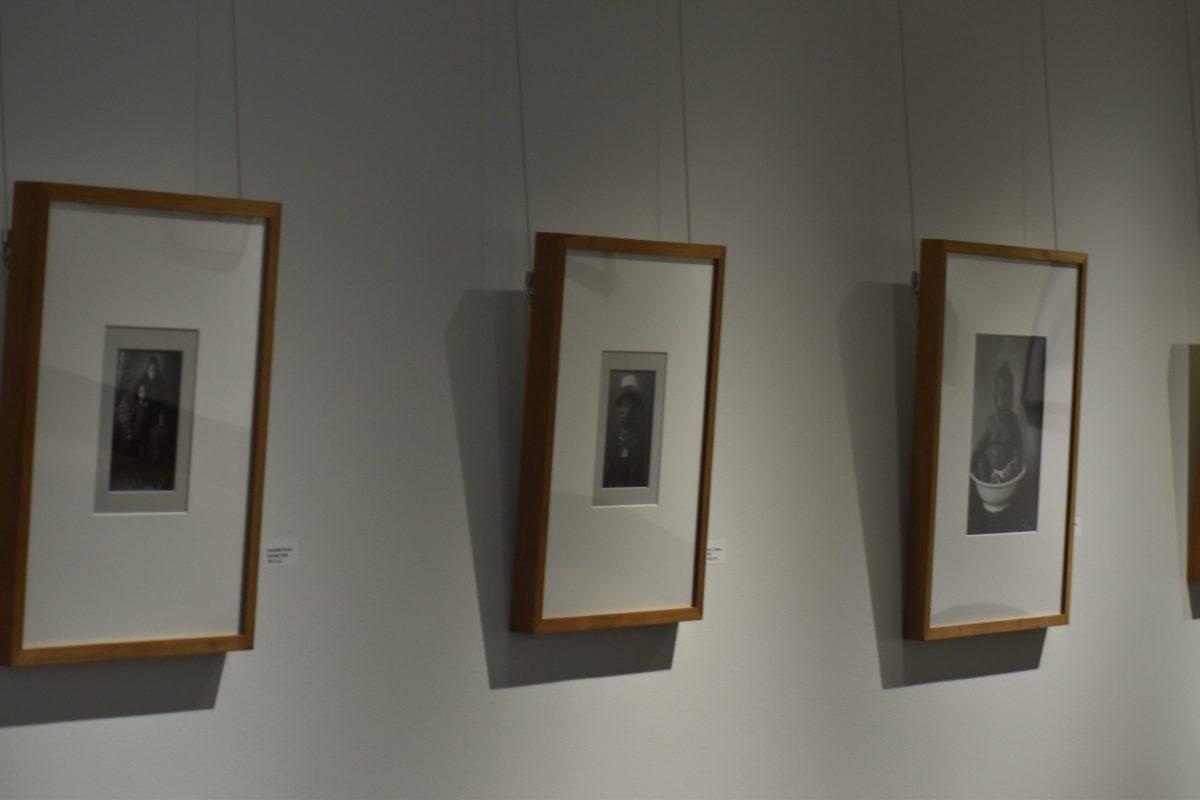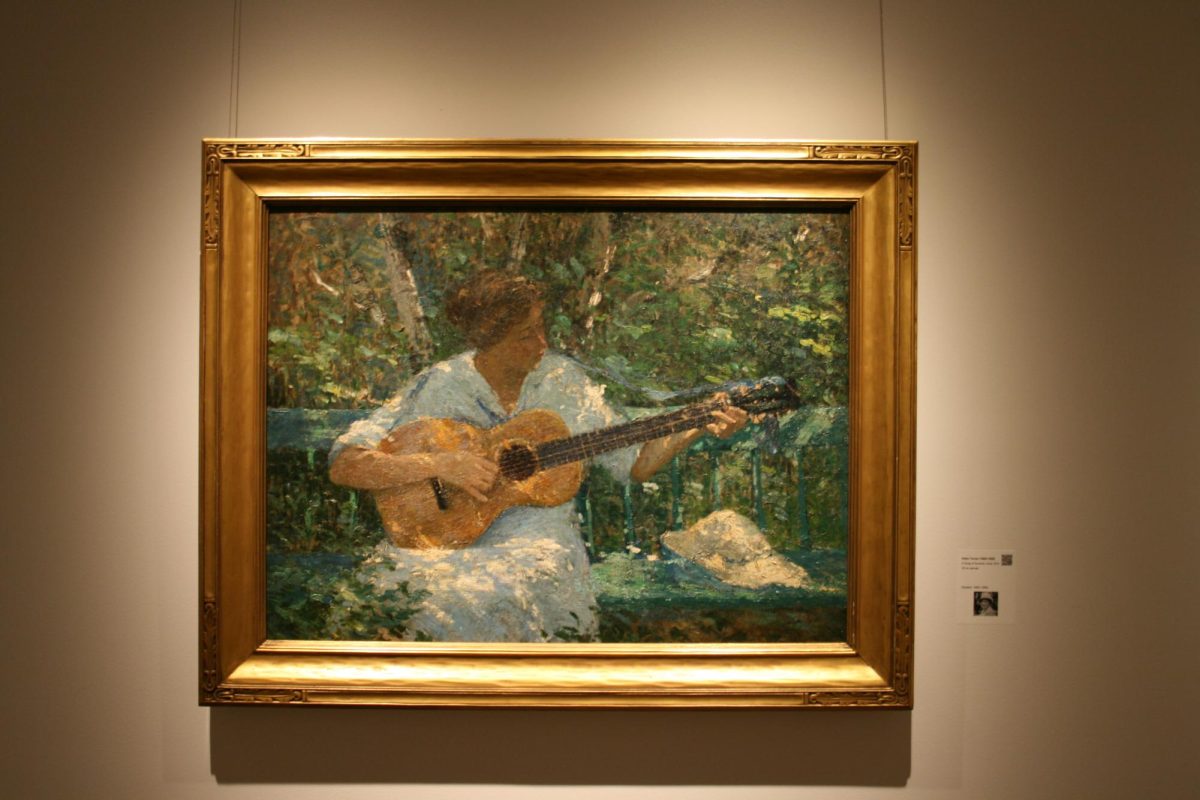Photographer discusses her major projects and her motivations behind them
Written jointly by Eyon Brown and Allison Sherman
Since 2015, Chapman Lectures in the Humanities have been a part of Wofford’s list of events for the purpose of enriching Wofford by way of notable artists and intellectuals who share their knowledge with the community. Every year, Dr. Karen Goodchild, Chapman Family Professor of Humanities, and Dr. Clayton Whisnant, Chapman Family Professor of Humanities, work in tandem to bring noted scholars to give public lectures in the humanities. Most recently, on Oct. 3 in the Rosalind Sallenger Richardson Center for the Arts, acclaimed photographer LaToya Ruby Frazier visited Wofford to deliver a lecture that spoke on family, systemic racism and injustice and the Flint Water Crisis.
A native of Braddock, Pennsylvania with ties to upstate South Carolina, Frazier works in photography, video and performance to address issues that impact America today. Such issues include industrialization, the environmental dangers that come as a result, racial inequality and healthcare inequity.
Frazier earned her Bachelor of Fine Arts in applied media arts from Edinboro University of Pennsylvania and her Master of Fine Arts in art photography from Syracuse University. She is one of the most highly acclaimed photographers in the country as a recipient of the MacArthur “Genius” Fellowship and the John Simon Guggenheim Memorial Foundation Fellowship. She was also chosen by Ebony as one of their 100+ Most Powerful Women of All Time.
Her work has been exhibited all over the United States and also internationally, but during her lecture at Wofford, Frazier discussed her award-winning book, The Notion of Family, a project that, as The Lavin Agency describes it, displays “the legacy of racism and economic decline in America’s small towns.”
As a case study, Frazier points directly to the place where her life began: Braddock, Pennsylvania.
In The Notion of Family, Frazier displays herself, her mother and her grandmother in a series of black and white images. The MacArthur Foundation says that the body of work “underscores the connection between self and physical space and makes visible the consequences of neglect and abandonment—unemployment, environmental health crises, and lack of access to services—for Braddock’s historically marginalized working-class African American community.”

In this project, Frazier captured an image of her mother in the hospital, seeking treatment for health issues that came as a result of the area’s industrialization. Frazier juxtaposes her mother’s condition with an image of the remains of Braddock’s only hospital that had been closed down and destroyed; in this way, she highlights the negative effects of capitalism in her town. The photos are in black and white, drawing attention to the contrasts and similarities of the two images.
The Notion of Family is Frazier’s first published book of photography; after its publication, she continued her artistic activism by travelling to Flint, Michigan to photograph the ongoing water crisis in the area.
“I allow the work to lead me,” said Frazier, when discussing how she decides what to photograph.
While speaking about her projects and her experience in Michigan, Frazier did not neglect to mention a potentially world-changing invention: an atmospheric water generator patented by Texas native Moses West, a black inventor and former United States Special Operator. West’s machine takes the air around it and turns it into water that is, as Frazier said, “99.9% pure,” which Flint residents had access to from 8 a.m. to 9 p.m. every day during the summer. Unfortunately, West had to take the machine back, but according to Frazier, smaller versions of the machine are currently in the works .
Frazier also photographed a young girl brushing her teeth with bottled water—since Flint’s water has lead contaminants, this is the safest way for the girl to brush them. The focus is on the girl’s mouth as the water is poured into it, and through this, Frazier draws the attention to the effects of the water crisis on everyday life.
Frazier continues her work as a photographer worldwide, most recently putting together a body of work in 2017 called And From The Coaltips A Tree Will Rise. This work features black and white images of the outdoor remains of industrialization and mining, as well as the indoor effects that it has had on families of four former miners from Borinage, Belgium.
One notable picture from the exhibit, which is currently on display in the Grand-Hornu Museum in Boussu, Belgium, is a group shot of Frazier’s four human subjects in the project. Four miners line up together, with the manager playfully posing on the right side.
Frazier discussed the importance of this exhibit to these men and their families, and to the area as a whole, as she was able to commemorate laborers that otherwise may not be acknowledged.
Frazier is currently an associate professor of art photography at the Art Institute of Chicago and urges all artists to remember the words of James Baldwin in “The Creative Process:” “The artist cannot and must not take anything for granted, but must drive to the heart of every answer and expose the question the answer hides.”
Her work is currently on display in the Rosalind Sallenger Richardson Center for the Arts.

























